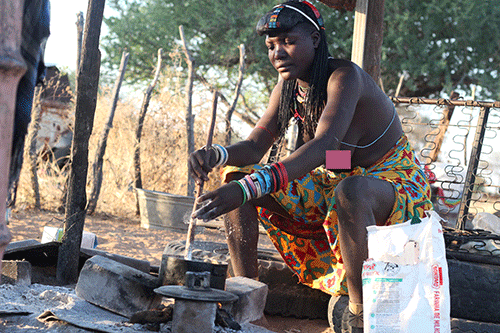An estimated 390 000 people faced acute food insecurity between January and March 2023. Exacerbating food insecurity were key factors such as high food prices and localised adverse weather that induced severe shortfalls in cereal production in 2022.
This state of affairs was shared by the Food and Agriculture Organisation (FAO) in its most recent crop prospects and quarterly global report on food.
The FAO is a specialised agency of the United Nations that leads international efforts to defeat hunger. Its goal is to achieve food security for all and to ensure people have regular access to enough high-quality food to lead active, healthy lives. The entity works in over 130 countries worldwide.
The FAO listed Namibia as one of the countries requiring external assistance for food.
“FAO assesses that globally, 45 countries including 33 in Africa, nine in Asia, two in Latin America and the Caribbean and one in Europe, are in need of external assistance for food. Although drought conditions eased in east Africa, production prospects remain unfavourable in 2023, while conflicts in several parts of the African continent are aggravating food security concerns,” reads the report.
Furthermore, total cereal production in Namibia is, however, estimated to be slightly above the five-year average in 2023, as a large outturn from the commercial sector, mostly irrigated maize, is estimated to have compensated for reduced harvests of millet and sorghum, mainly grown by small-scale farmers.
“There are, in addition, several hotspot areas that are of particular concern, namely southern Angola, northern Namibia and southern Malawi, where adverse weather conditions resulted in poor agricultural outputs. Rural households in these areas are expected to face heightened levels of food insecurity on account of tighter food supplies and reduced income-earning opportunities from crop sales,” the agency warned.
Furthermore, with a looming drought, Cabinet earlier this year directed the Office of the Prime Minister to extend the drought relief programme by the tune of N$121 million to Kunene, and parts of Erongo and Omusati. The programme runs from April to May 2024, according to existing criteria. These are some efforts government has implemented to rising poverty and rising food insecurity.
Higher prices
Yesterday, the Namibia Statistics Agency (NSA) released June 2023 inflation figures. The major consumer price index (NCPI) high-weighted divisions contributions to the annual inflation rate of 5.3% in June 2023 were food and non-alcoholic beverages (2.2 percentage points), alcoholic beverages and tobacco (0.8 percentage points), housing, water, electricity, gas, and other fuels (0.7 percentage points).
Food and non-alcoholic beverages, which accounts for 16.5% of the NCPI basket, registered an annual inflation rate of 11.7% during June 2023, compared to 7% obtained during the corresponding period.
“On average, vegetables recorded an increase in prices of 18.5% in June 2023 compared to 4.8% recorded a year ago. Bread and cereals were 17.3% more expensive in June 2023. The largest rise was reflected in maize, meal/grain (from 7.9% to 23.4%), rice (from -3.8% to 10.0%), mealie, rice/malt (from 6.8% to 18.4%), and macaroni, spaghetti and noodles (from 8.6% to 18.8%),” the statistics agency shared the figures.
National priority
Meanwhile, Vice President Nangolo Mbumba recently said food security remains a national priority for government. He noted that this priority remains despite the impact of climate change on the agricultural sector which results in recurrent droughts and high energy and food prices which weigh heavily on Namibian households.
Mbumba made these remarks during the recent launch of the University of Namibia’s (Unam) seed multiplication and wheat seed planting project at the Evaristus Shikongo correctional facility in Tsumeb.
Mbumba said in a speech, in its National Development Plans, Namibia has prioritised increased productivity in agriculture, especially for smallholder farmers as game changers and key drivers in achieving inclusive, sustainable and equitable economic growth.
“Most of the Sustainable Development Goals namely, “no poverty, zero hunger, good health and well-being, and quality education’’ are intertwined with sustainable food production and food security, hence the importance of this event today,” he said.
Mbumba highlighted that Unam aims to become a high technology and innovation centre that interphases its research capacities, facilities, staff and students with industry and developmental partners to solve challenges, especially in the areas of agriculture and natural resources management and utilisation.
“I, therefore, applaud the efforts of the University of Namibia and the Namibian Agronomic Board in initiating the seed research project which will eventually lead to arresting hunger and complement our government’s national development efforts,” he said.
The Seed Research Project consists of two phases: Phase one focuses on research by planting various seeds and identifying high-yielding varieties based on the genetics of the seeds and environmental conditions. Phase two focuses on seed multiplication on a large scale.


